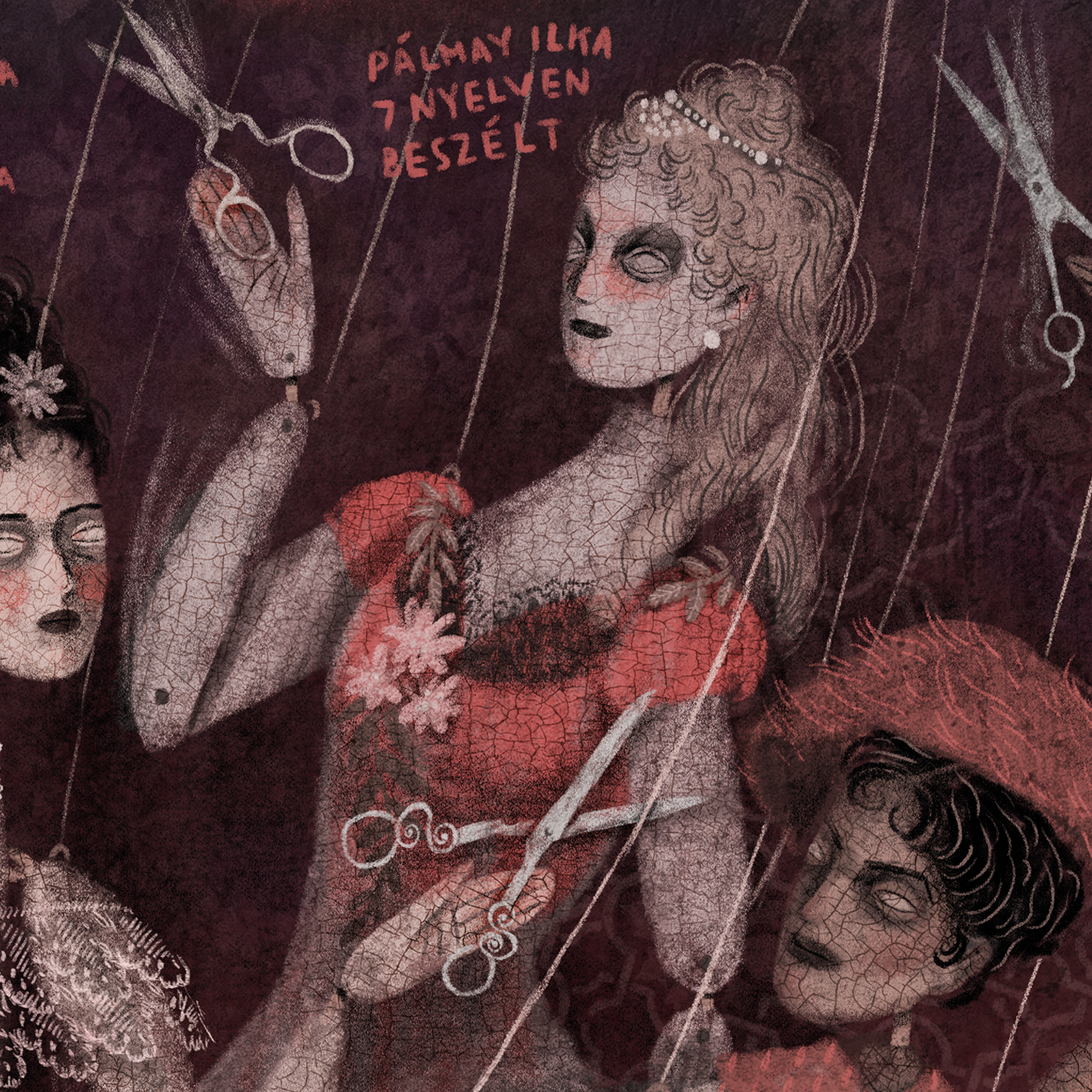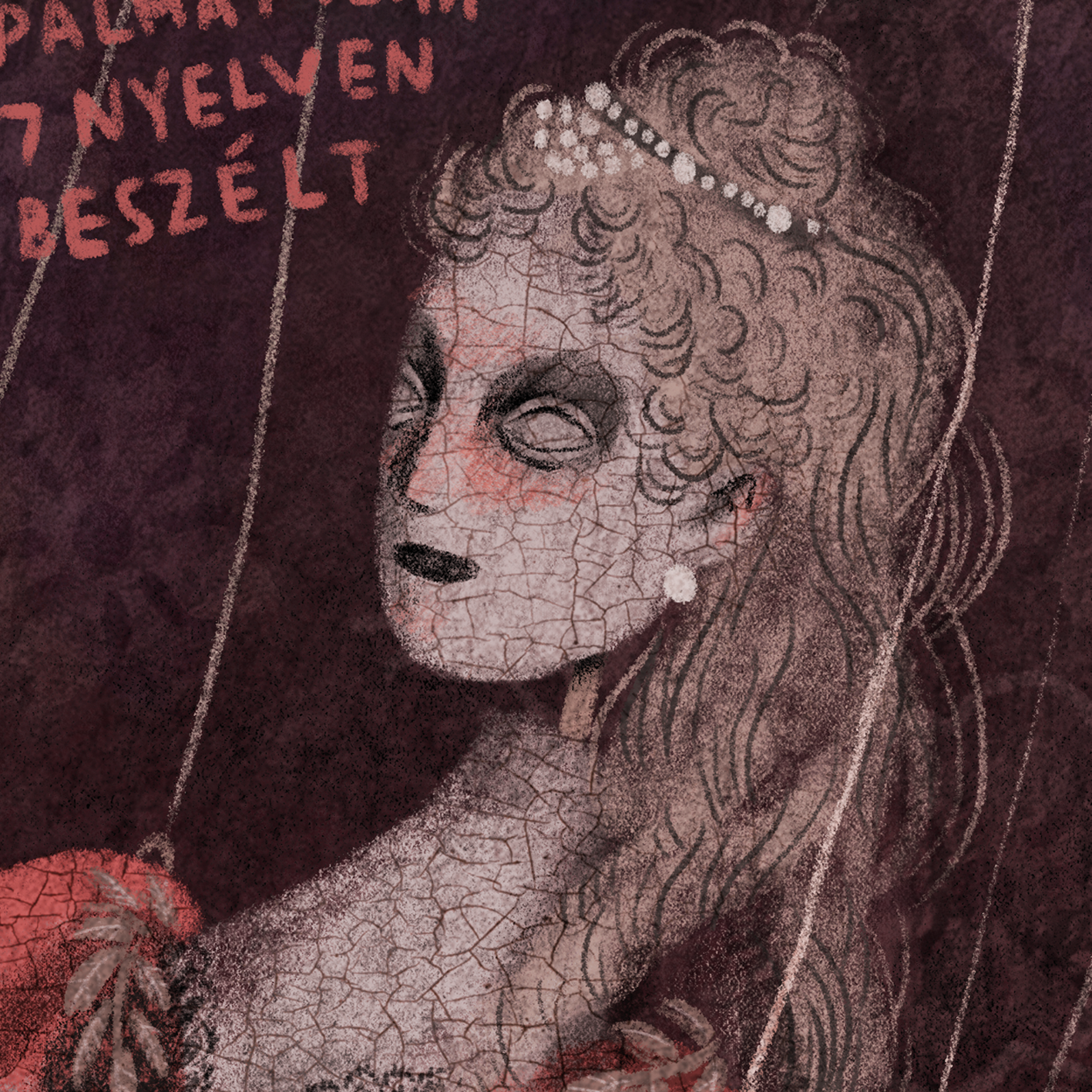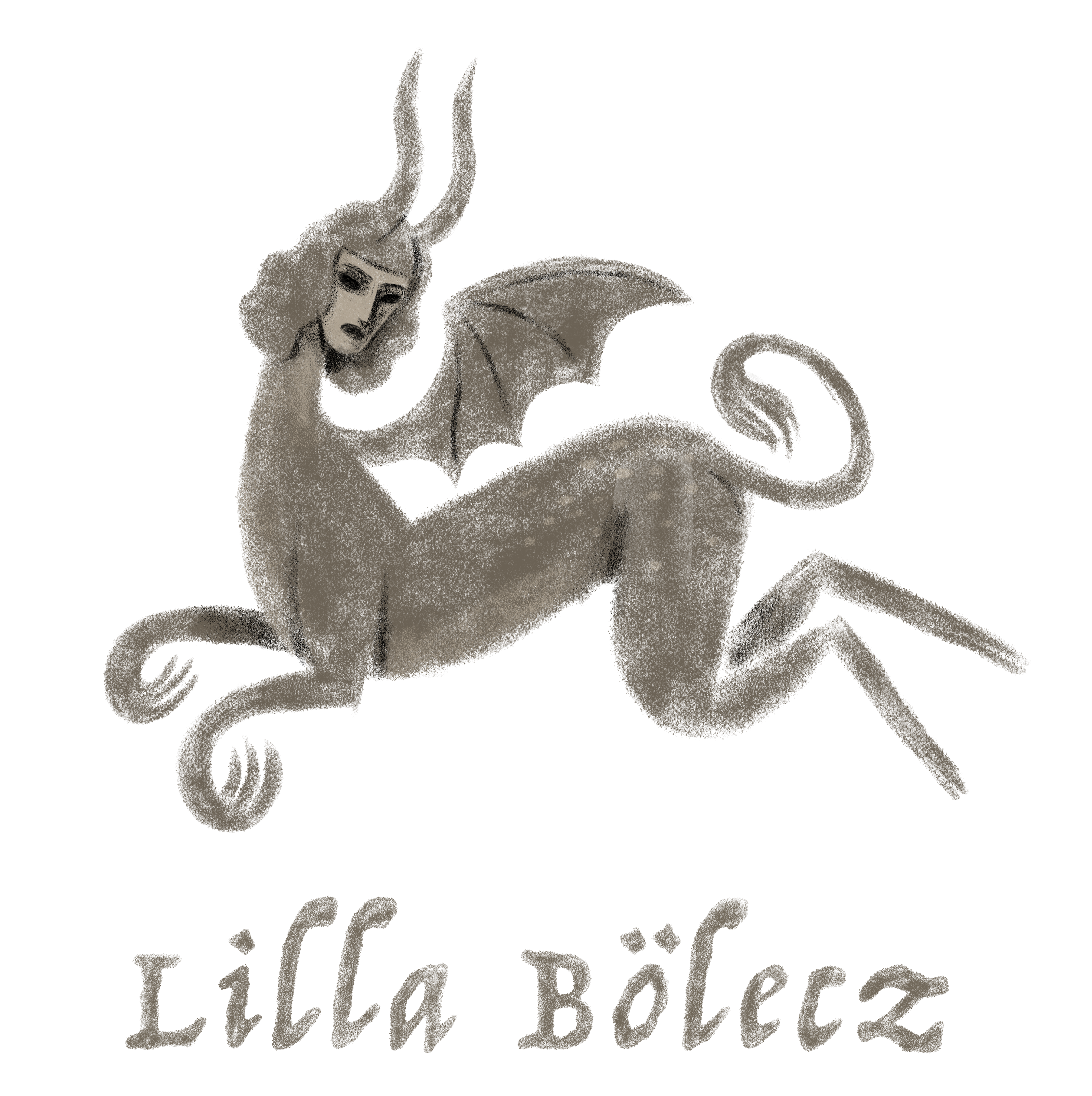The Budapester is an art project and poster exhibition organised by Budapest Brand to celebrate the 150th anniversary of Budapest, the capital of Hungary. Each year of the city was illustrated by a different artist, and my theme was 1875.
1875 was the year when the Népszínház, a theatre for the common people, opened its doors. At that time, acting was one of the few professions open to women, as they weren't taken seriously as artists or intellectuals. Three very popular prima donnas performed in this theatre: Lujza Blaha, Aranka Hegyi and Ilka Pálmay. Their lives were very eventful and a bit like a rollercoaster ride. It wasn't easy to be an actress: their popularity could decline due to age or illness, and jealous husbands could also hinder such a career. So they were still like puppets, pushed and pulled by society, the people in power, the audience or their controlling families. What really touched me about these three women is that, despite their circumstances, they didn't behave like rivals - they were friends and helped each other in solidarity. These are the scissors that can cut the binding strings.
Lujza Blaha was a prima donna who became a legend during her lifetime. She was called the nation's nightingale and even had a square named after her on her 70th birthday. She started out as a child actress in her mother's theatre troupe, and her clear singing voice made her a huge success. But life on the road wasn't all fun and games, and at 16 Lujza had to marry a man 22 years her senior to escape poverty. The couple didn't even speak the same language. Although Lujza was married several times, her life was really about work and success in her acting career. She was cast in the most popular, light-hearted operettas, but she always longed for more serious and dramatic roles.
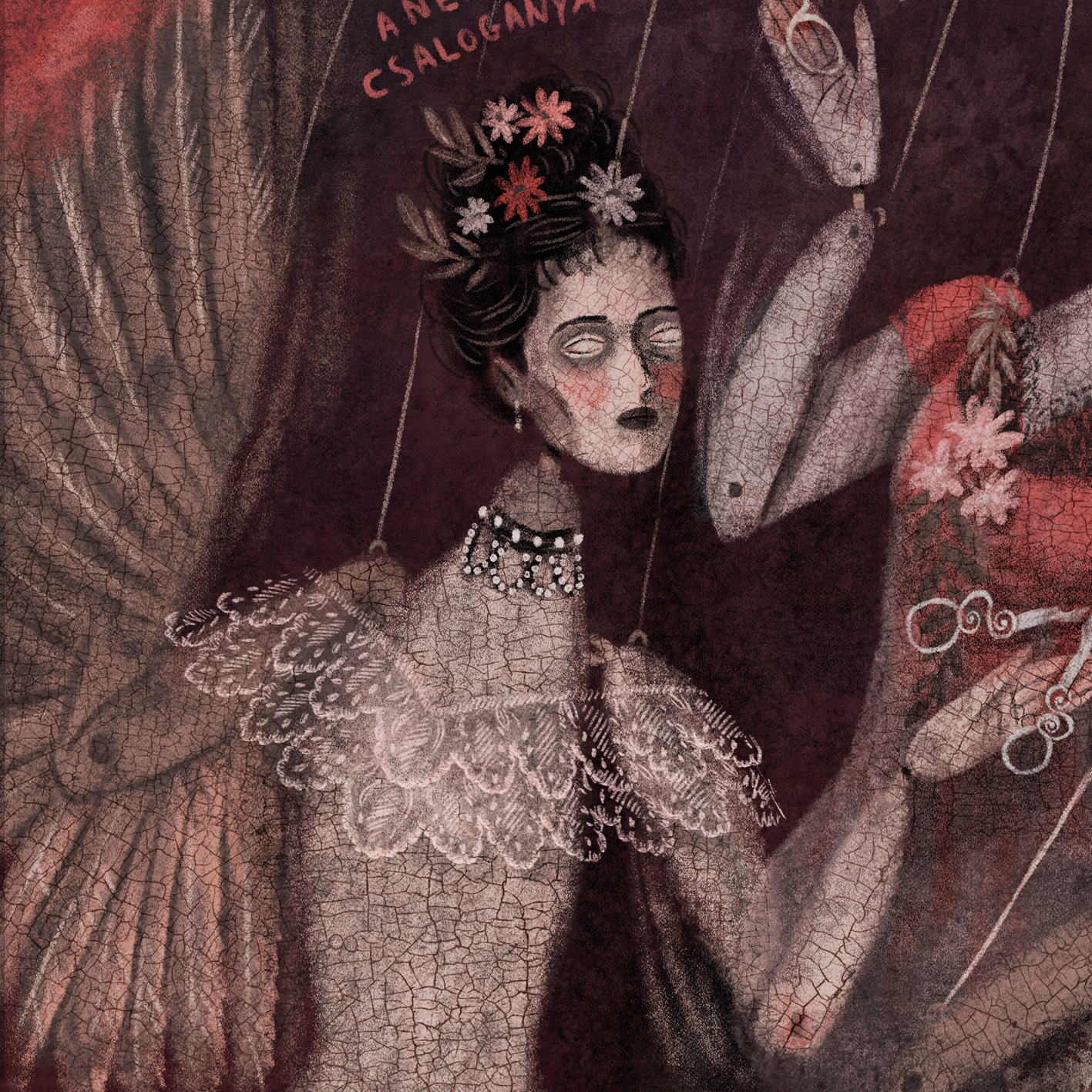
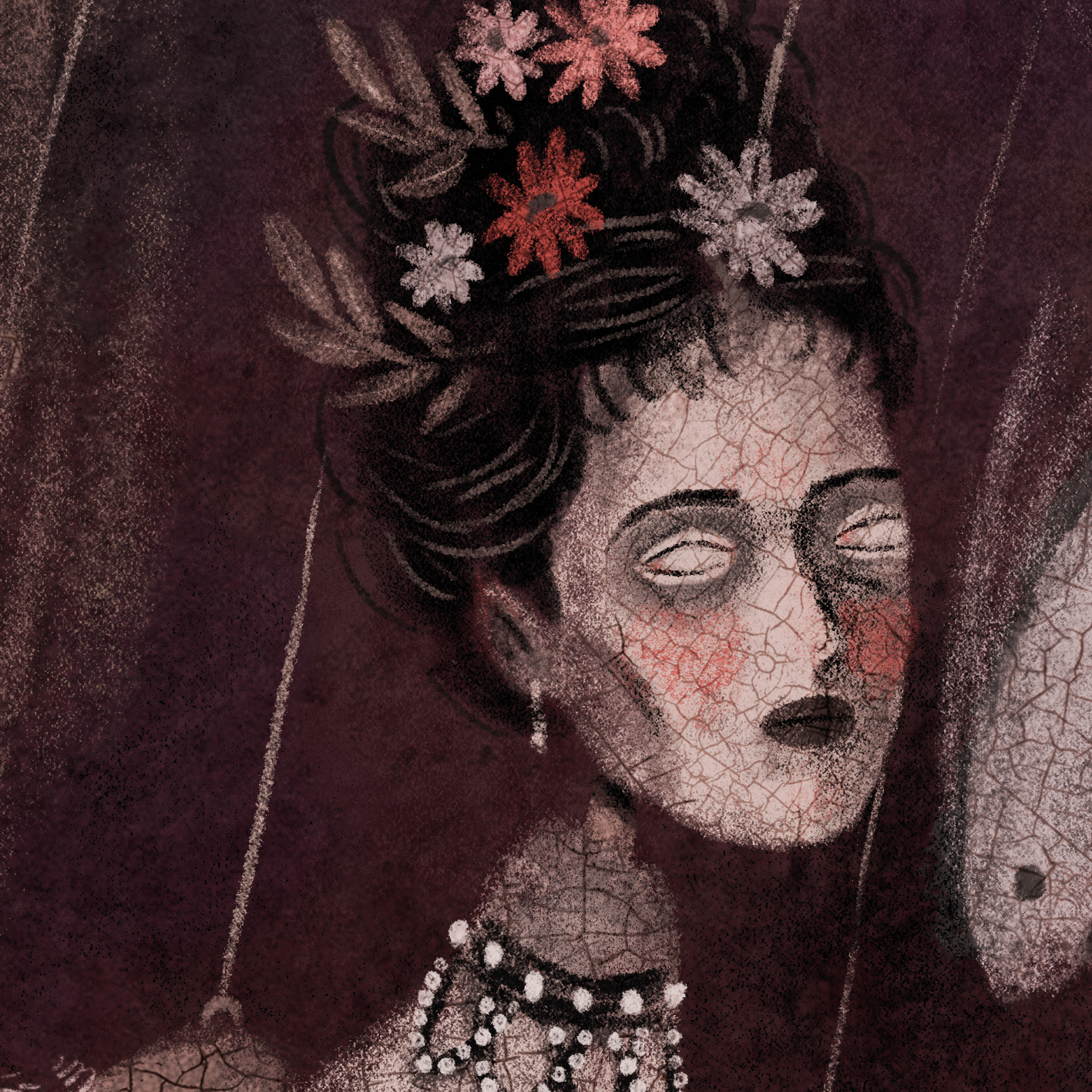
Aranka Hegyi was the daughter of the lead violinist of a gypsy band. Her father died young and she was cast out of the wealthy family. To avoid starvation Aranka had to work as a maid from an early age. She used to sing a lot while cleaning the house. A neighbour noticed her beautiful voice and helped Aranka to learn singing, acting and dancing, while she was still making a living from cleaning water bottles. Even after she became celebrated and famous as a prima donna, she was known as a modest and down-to-earth person who was never caught gossiping. The illustration shows her in the role of a prince.
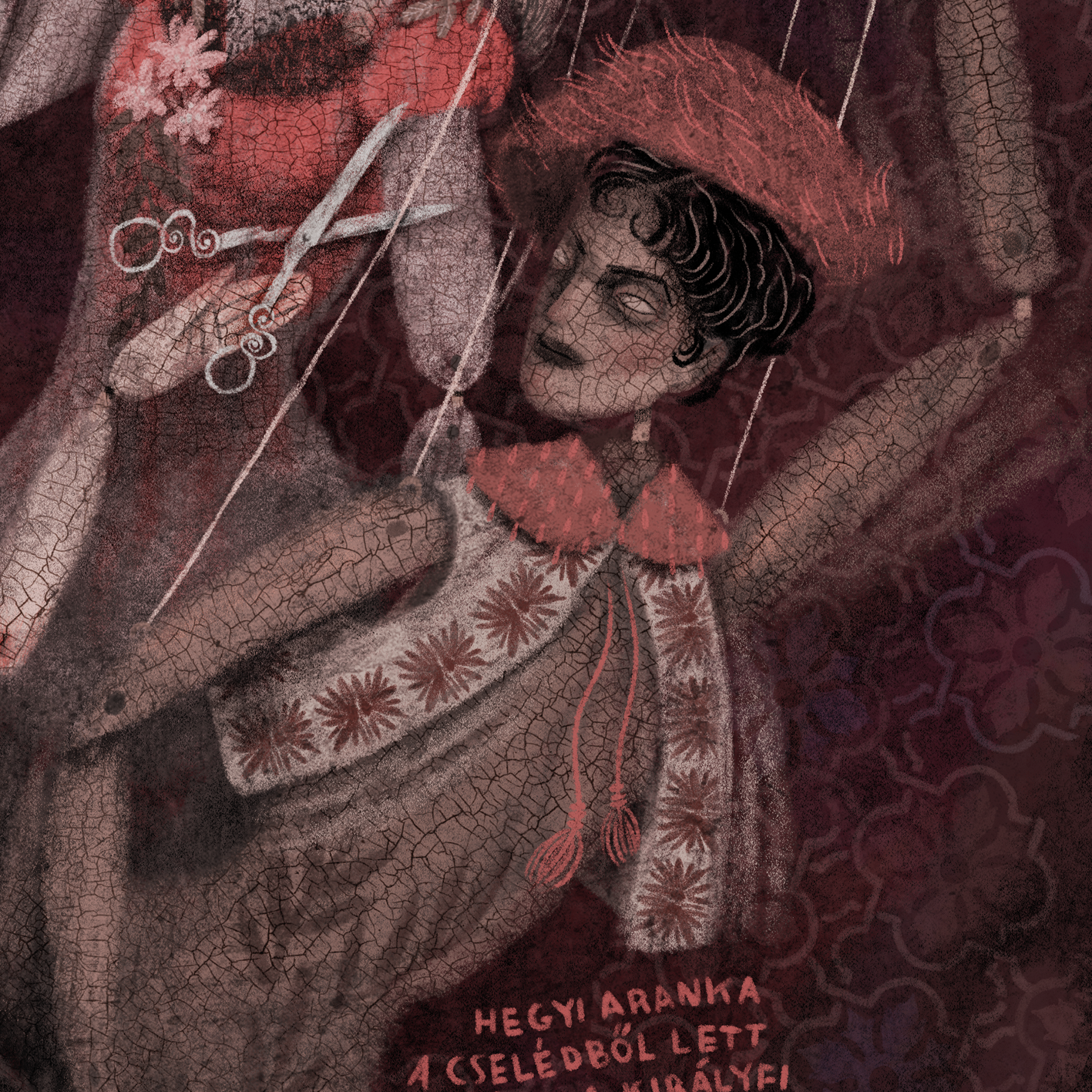
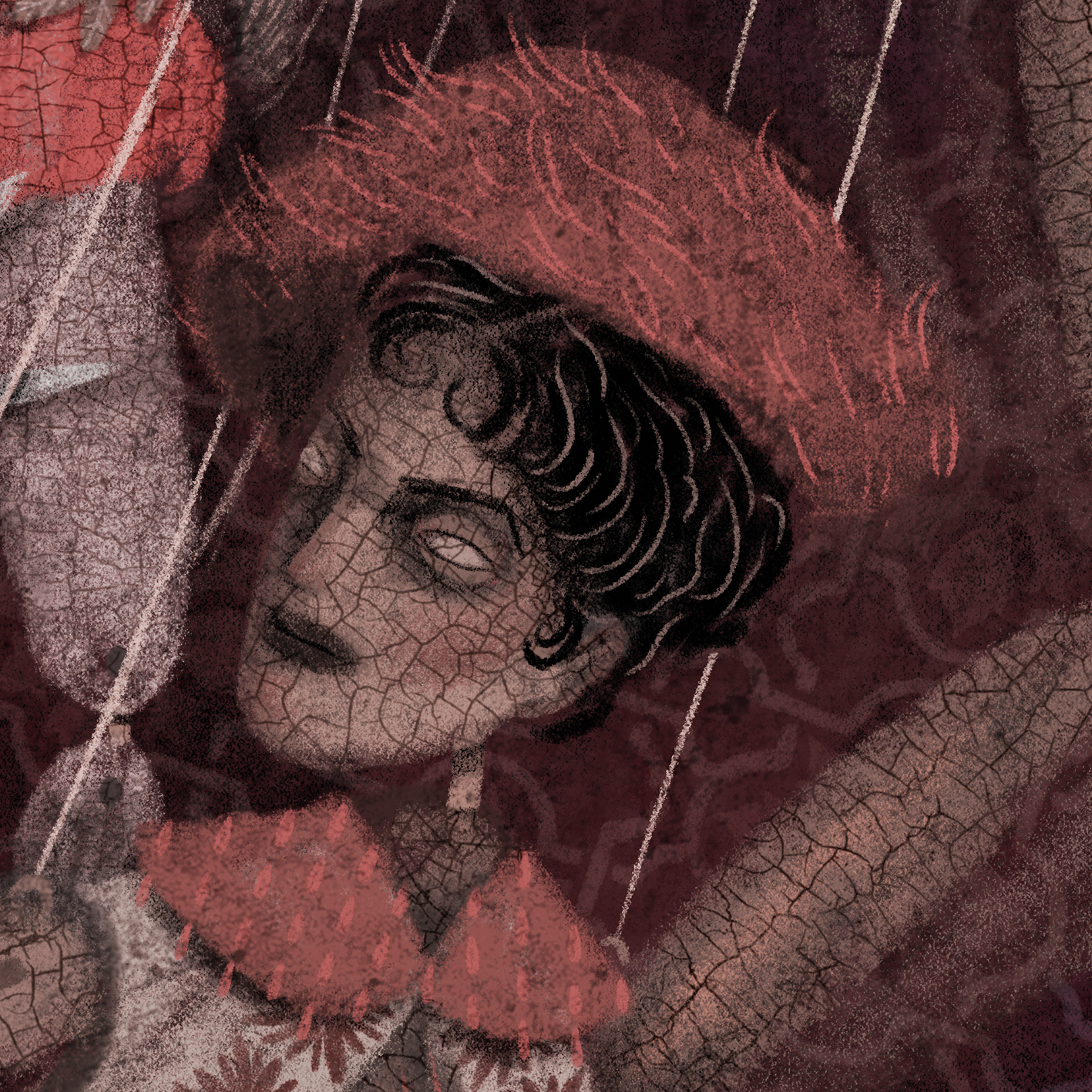
Even as a child, Ilka Pálmay was always asked to sing to entertain her family. However, they were astonished when Ilka wanted to become an actress. They sent her to a convent, but she didn't like the strict rules – she escaped, started acting and soon became very popular. However, she wasn't very lucky in love. Her first husband was also an actor who couldn't stand the fact that Ilka was more famous than he was. She divorced him to escape his drunken abuse and violence. Her second husband was a count – again jealous that so many people loved his wife, and wanted Ilka to end her career. She acted and was celebrated in the most famous places across the world. She spoke and sang seven languages and enchanted audiences whenever she went on stage.
